Cilacar-TM 25 Tablet 10's
MRP ₹148.5
(Inclusive of all Taxes)
₹22.3 Cashback (15%)
Provide Delivery Location
Online payment accepted
 Prescription drug
Prescription drugWhats That
Composition :
Manufacturer/Marketer :
Consume Type :
Expires on or after :
Return Policy :
About Cilacar-TM 25 Tablet
Cilacar-TM 25 Tablet belongs to the group of anti-hypertensive medicines used to treat high blood pressure (hypertension). Cilacar-TM 25 Tablet helps lower blood pressure, thereby reduces the chances of heart problems such as heart attack and stroke. High blood pressure is a condition in which the blood exerts increased pressure on the walls of blood vessels. Symptoms include headache, dizziness, nosebleeds, changes in vision, chest pain, weakness and dyspnea (shortness of breath). However, most of the time, the signs and symptoms of hypertension are none.
Cilacar-TM 25 Tablet is a combination of three drugs, namely: Cilnidipine, Telmisartan, and Metoprolol. Cilnidipine acts on the calcium channels of the blood vessels and suppresses the contraction of blood vessels, thereby helps blood flow smoothly. Telmisartan works by blocking the angiotensin II receptor, thereby relaxes the blood vessels and lowers the blood pressure. Metoprolol slows down the heart rate and makes it easier for the heart to pump blood throughout the body. Together, Cilacar-TM 25 Tablet helps treat hypertension.
You are advised to take Cilacar-TM 25 Tablet for as long as your doctor has prescribed it for you, depending on your medical condition. In some cases, you may experience certain common side-effects such as headache, nausea, dizziness, weakness, decreased blood pressure and slow heart rate. Most of these side effects do not require medical attention and will resolve gradually over time. However, you are advised to talk to your doctor if you experience these side effects persistently.
Try not to stop taking it on your own, as it may cause a sudden increase the blood pressure. Consult your doctor if you are pregnant or breastfeeding. Cilacar-TM 25 Tablet is not recommended for children as efficacy and safety have not been established. Cilacar-TM 25 Tablet may cause dizziness, so drive with caution. Avoid consuming alcohol as it might cause increased dizziness. Inform your doctor about all the medicines you are taking and your health condition to rule out any unpleasant side effects/interactions.
Uses of Cilacar-TM 25 Tablet
Directions for Use
Key Benefits
Cilacar-TM 25 Tablet is a combination of three drugs, namely: Cilnidipine, Telmisartan, and Metoprolol. Cilacar-TM 25 Tablet is used to treat hypertension. Cilnidipine is a calcium channel blocker that acts on the calcium channels of the blood vessels and suppresses the contraction of blood vessels, thereby helps blood flow smoothly. Telmisartan is an angiotensin receptor blocker that works by blocking the angiotensin II receptor, thereby relaxes the blood vessels and lowers the blood pressure. Metoprolol is a beta-blocker that slows down the heart rate and makes it easier for the heart to pump blood throughout the body. Together, Cilacar-TM 25 Tablet helps treat hypertension. Cilacar-TM 25 Tablet helps lower blood pressure, thereby reduces the chances of heart problems such as heart attack and stroke.
Storage
Drug Warnings
Do not take Cilacar-TM 25 Tablet if you are allergic to any of its contents. Inform your doctor if you have diabetes, circulation problems, asthma, thyroid disorder, adrenal gland tumour, heart, kidney, or liver problems; if you are on a low-salt diet or if you are taking potassium supplements. Consult your doctor if you are pregnant or breastfeeding. Cilacar-TM 25 Tablet is not recommended for children as efficacy and safety have not been established. Cilacar-TM 25 Tablet may cause dizziness, so drive with caution. Avoid consuming alcohol as it might cause increased dizziness. Rise slowly from lying/sitting position as Cilacar-TM 25 Tablet may cause dizziness (orthostatic hypotension).
Drug-Drug Interactions
Drug-Drug Interactions
Login/Sign Up
Co-administration of Aliskiren with Cilacar-TM 25 Tablet can increase the risk of hyperkalemia (high potassium levels in the blood).
How to manage the interaction:
Taking Cilacar-TM 25 Tablet with Aliskiren can possibly lead to an interaction, please consult a doctor before taking it. Do not discontinue the medications without consulting a doctor.
Co-administration of Cilacar-TM 25 Tablet may significantly increase the blood levels of lithium.
How to manage the interaction:
Although there is a possible interaction, Cilacar-TM 25 Tablet can be taken with lithium if prescribed by the doctor. Consult the prescriber if you experience symptoms of lithium intoxication such as drowsiness, dizziness, confusion, loose stools, vomiting, muscle weakness, muscle incoordination, shaking of hands and legs, blurred vision, ringing in the ear, excessive thirst, or increased urination. Do not discontinue the medication without consulting a doctor.
Co-administration of Potassium acetate can make Cilacar-TM 25 Tablet more likely to cause high levels of potassium in the blood.
How to manage the interaction:
Although taking Potassium acetate and Cilacar-TM 25 Tablet together can evidently cause an interaction, it can be taken if your doctor has suggested it. Do not stop using any medications without a doctor's advice.
Taking ramipril with Cilacar-TM 25 Tablet may increase the risk of side effects such as low blood pressure, kidney function impairment, and high blood potassium.
How to manage the interaction:
Although there is a possible interaction, Cilacar-TM 25 Tablet can be taken with ramipril if prescribed by the doctor. Consult the prescriber if you experience symptoms of high potassium such as nausea, vomiting, weakness, confusion, tingling of the hands and feet, feelings of heaviness in the legs, a weak pulse, or a slow or irregular heartbeat. Maintain adequate fluid intake during treatment with these medications. Do not discontinue the medications without consulting a doctor.
Taking Potassium citrate with Cilacar-TM 25 Tablet together may increase potassium levels in the blood, which can lead to kidney failure, muscular paralysis, and abnormal heart rhythm.
How to manage the interaction:
Although taking Potassium citrate with Cilacar-TM 25 Tablet together can possibly result in an interaction, it can be taken if a doctor has advised it. However, consult the doctor if you experience nausea, vomiting, weakness, disorientation, tingling in your hands and feet, feelings of heaviness in your legs, a weak pulse, or a slow or irregular heartbeat. It is essential to maintain proper fluid intake while taking these medications. It is advised to reduce the intake of potassium-rich foods. Do not discontinue any medications without a doctor's advice.
Taking Potassium Iodide with Cilacar-TM 25 Tablet can make high levels of potassium in the blood more likely.
How to manage the interaction:
Although taking Potassium iodide and Cilacar-TM 25 Tablet together can evidently cause an interaction, it can be taken if your doctor has suggested it. Do not stop using any medications without a doctor's advice.
Taking lisinopril with Cilacar-TM 25 Tablet may increase the levels of potassium in blood.
How to manage the interaction:
Although there is a possible interaction, Cilacar-TM 25 Tablet can be taken with lisinopril if prescribed by the doctor. Consult the prescriber if you experience symptoms of high potassium such as nausea, vomiting, weakness, confusion, tingling of the hands and feet, feelings of heaviness in the legs, a weak pulse, or a slow or irregular heartbeat. Maintain adequate fluid intake during treatment with these medications.
Taking spironolactone with Cilacar-TM 25 Tablet may increase potassium levels in the blood.
How to manage the interaction:
Although there is a possible interaction, Cilacar-TM 25 Tablet can be taken with spironolactone if prescribed by the doctor. Consult the prescriber if you experience symptoms of high potassium such as nausea, vomiting, weakness, confusion, tingling of the hands and feet, feelings of heaviness in the legs, a weak pulse, or a slow or irregular heartbeat. Maintain adequate fluid intake during treatment with these medications. Do not discontinue the medications without consulting a doctor.
Coadministration of enalapril with Cilacar-TM 25 Tablet may increase the risk of hyperkalemia (high potassium levels in the blood), hypotension, syncope (fainting), and renal failure due to additive or synergistic effects. If you are elderly, dehydrated, or have a history of renal or heart illness, your risk is enhanced.
How to manage the interaction:
Although taking Enalapril together with Cilacar-TM 25 Tablet may possibly result in an interaction, they can be taken together if prescribed by your doctor. However, contact your doctor immediately if you experience signs and symptoms of hyperkalemia, such as nausea, vomiting, confusion, numbness, tingling in hands and feet, and irregular heartbeat. It is advised to limit the intake of potassium-rich foods like tomatoes, bananas, papayas, mangoes, beans, and potassium-containing supplements. Do not discontinue any medication without consulting your doctor.
Taking quinapril with Cilacar-TM 25 Tablet may increase the risk of side effects such as low blood pressure, kidney function impairment, and high blood potassium.
How to manage the interaction:
Although there is a possible interaction, Cilacar-TM 25 Tablet can be taken with quinapril if prescribed by the doctor. Consult the prescriber if you experience symptoms of high potassium, such as nausea, vomiting, weakness, confusion, tingling of the hands and feet, feelings of heaviness in the legs, a weak pulse, or a slow or irregular heartbeat. Maintain adequate fluid intake during treatment with these medications. Do not discontinue the medications without consulting a doctor.
Drug-Food Interactions
Drug-Food Interactions
Login/Sign Up
Diet & Lifestyle Advise
- Consume low salt and low-fat diet.
- Regular exercise is also recommended to complement treatment with Cilacar-TM 25 Tablet .
- Eat a diet rich in whole grains, vegetables, and fruits.
- Avoid smoking and alcohol consumption.
- Maintain a healthy weight with proper diet and exercise.
- Managing stress with meditation, yoga, massage would also help in treating high blood pressure.
- Avoid consuming food rich in potassium, such as banana, broccoli, almonds, avocado, and potassium supplements.
Side Effects of Cilacar-TM 25 Tablet
- Headache
- Nausea
- Weakness
- Slow heart rate (bradycardia)
- Dizziness
Habit Forming
Therapeutic Class
All Substitutes & Brand Comparisons
RX
Lndip TM 25 Tablet 10's
Fusion Health Care Pvt Ltd
₹103
(₹9.27 per unit)
30% CHEAPERRX
Teldawn LNB 25 Tablet 10's
Fusion Health Care Pvt Ltd
₹103
(₹9.27 per unit)
30% CHEAPERRX
Metolar Trio 25 Tablet 10's
Cipla Ltd
₹115.5
(₹10.4 per unit)
22% CHEAPER
Author Details
We provide you with authentic, trustworthy and relevant information
Drug-Diseases Interactions
Drug-Diseases Interactions
Login/Sign Up
FAQs
Drug-Drug Interactions Checker List
- ASPIRIN
- PREGABALIN
- PHENYTOIN
- DULOXETINE
- INSULIN GLARGINE
- FUROSEMIDE
- LEVOTHYROXINE
- ERYTHROMYCIN
- RIFAMPICIN
- QUINIDINE
- ALDESLEUKIN
Special Advise
- Regular monitoring of blood pressure levels, kidney function and electrolyte levels while taking Cilacar-TM 25 Tablet is advised.
Disease/Condition Glossary
High blood pressure (hypertension): It is a condition in which the blood exerts increased pressure on the walls of blood vessels leading to hypertension. This condition can lead to hardened arteries (blood vessels), decreasing the blood and oxygen flow to the heart. Raised blood pressure can cause chest pain (angina) and heart attack (when the blood supply to the heart is blocked). Additionally, high blood pressure also causes brain damage (stroke) and kidney failure. Symptoms of high blood pressure include headache, dizziness, nose bleed, changes in vision, chest pain, weakness and dyspnoea (shortness of breath). However, most of the time, the signs and symptoms of hypertension are none.

Have a query?
Alcohol
Safe if prescribed
Avoid consuming alcohol as it might cause increased dizziness.
Pregnancy
Consult your doctor
Please consult your doctor if you are pregnant; your doctor will prescribe only if the benefits outweigh the risks.
Breast Feeding
Consult your doctor
Please consult your doctor if you are breastfeeding; your doctor will decide whether Cilacar-TM 25 Tablet can be given to breastfeeding mothers or not.
Driving
Safe if prescribed
Cilacar-TM 25 Tablet may cause dizziness, do not drive or operate heavy machinery if you feel dizzy.
Liver
Consult your doctor
Dose adjustment may be needed. Cilacar-TM 25 Tablet should be used with caution in patients with liver impairment/liver disease. Please consult your doctor if you have liver problems or any concerns regarding this.
Kidney
Consult your doctor
Dose adjustment may be needed. Cilacar-TM 25 Tablet should be used with caution in patients with kidney impairment/kidney disease. Please consult your doctor if you have kidney problems or any concerns regarding this.
Children
Safe if prescribed
Cilacar-TM 25 Tablet is not recommended for children as safety and effectiveness have not been established.
Recommended for a 30-day course: 3 Strips

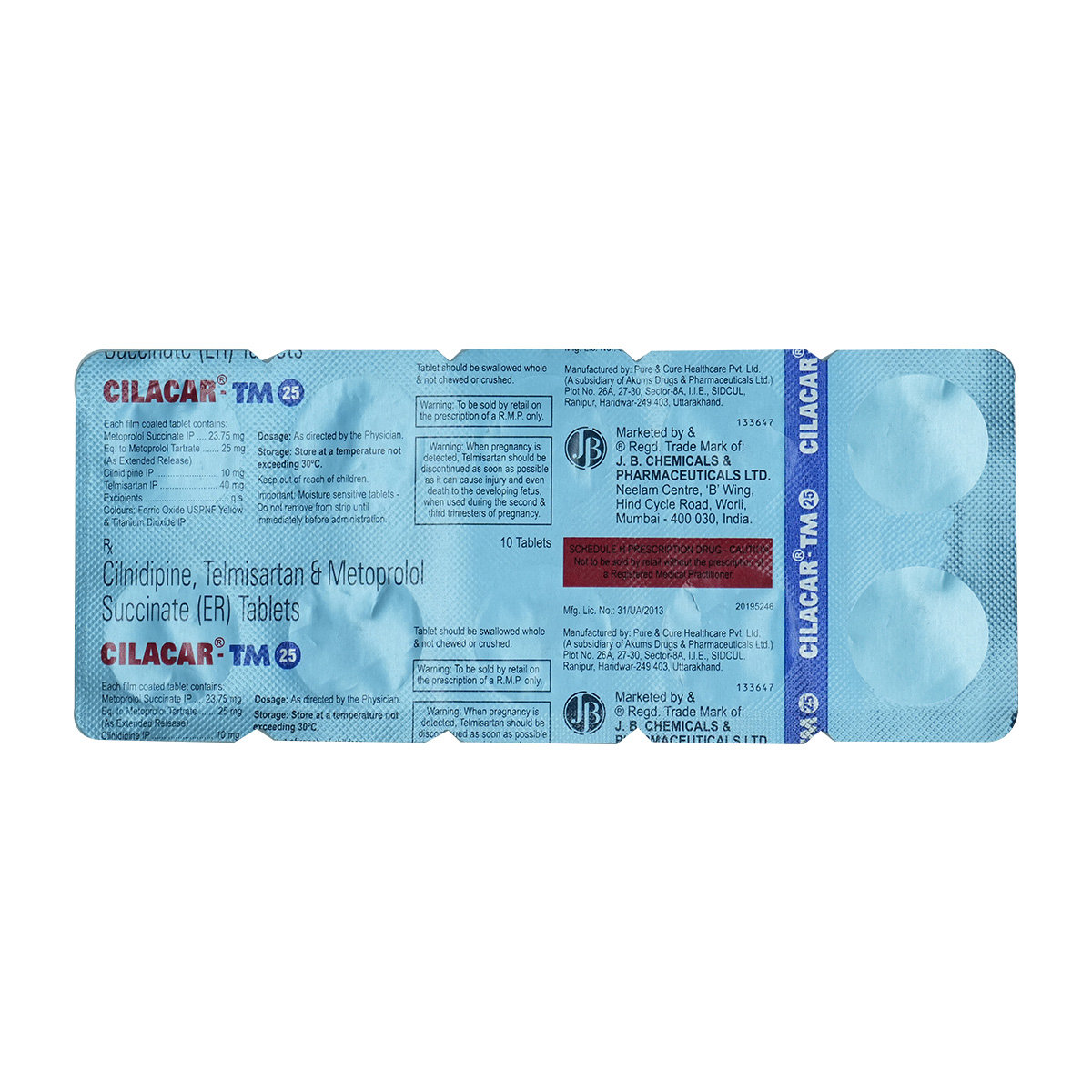
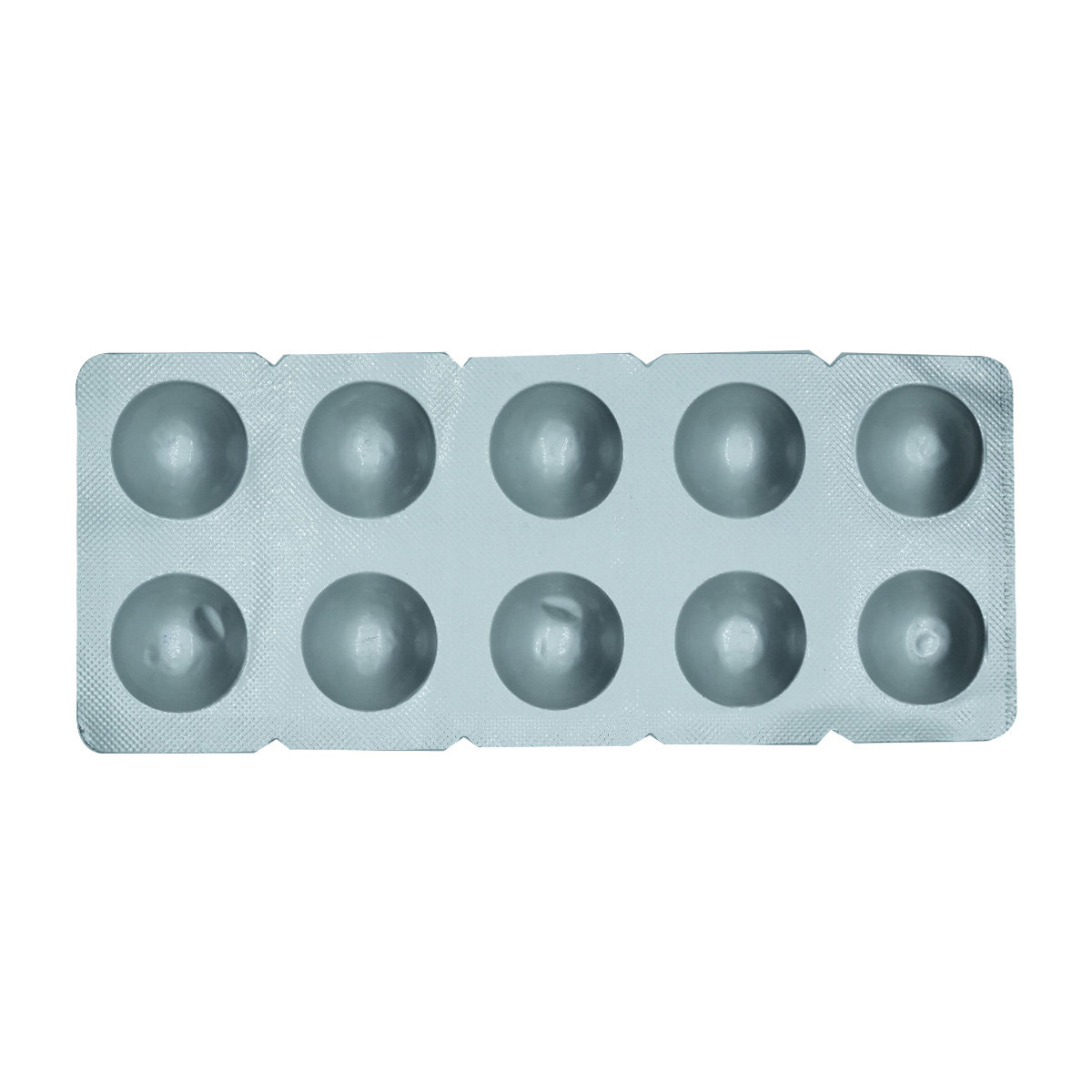



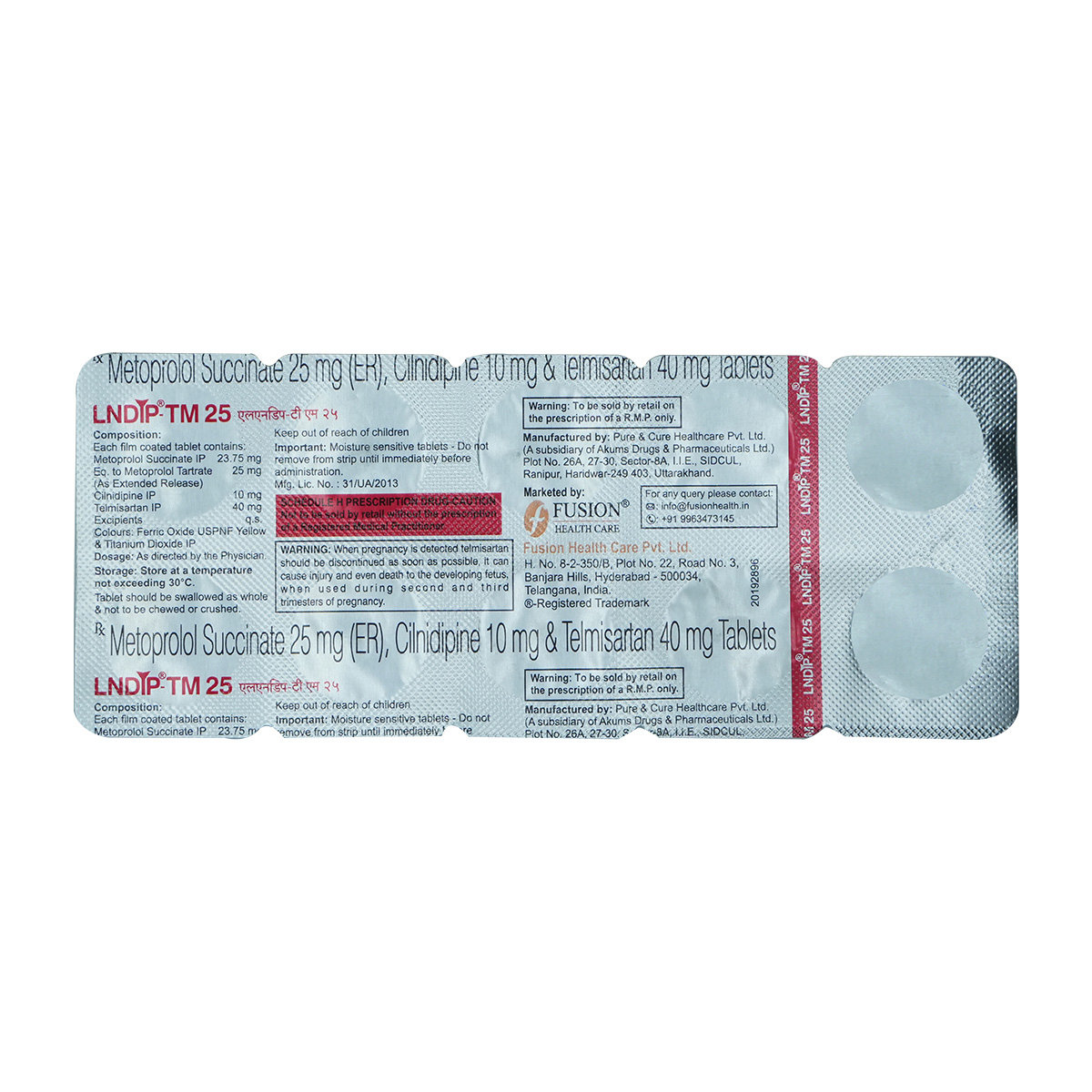
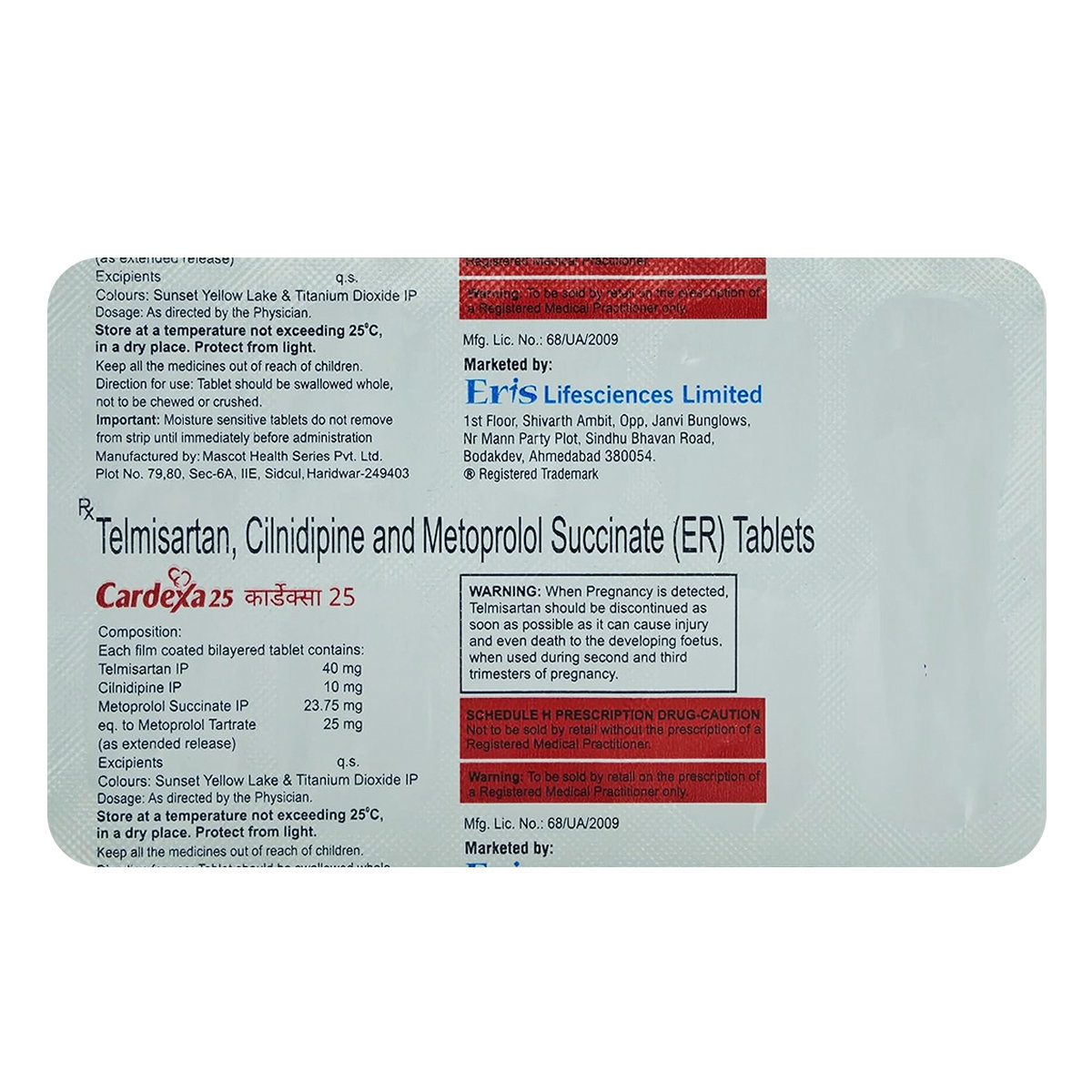
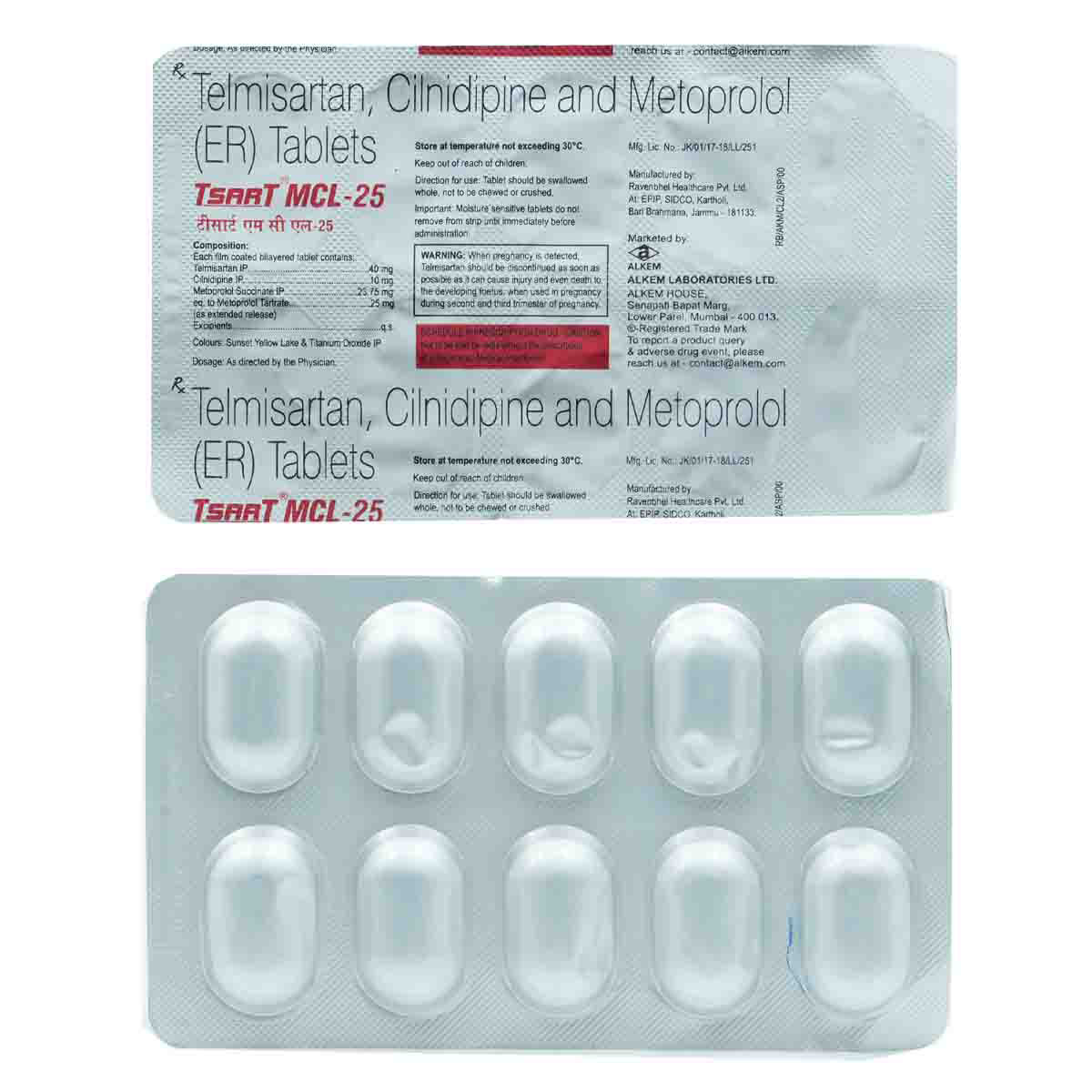
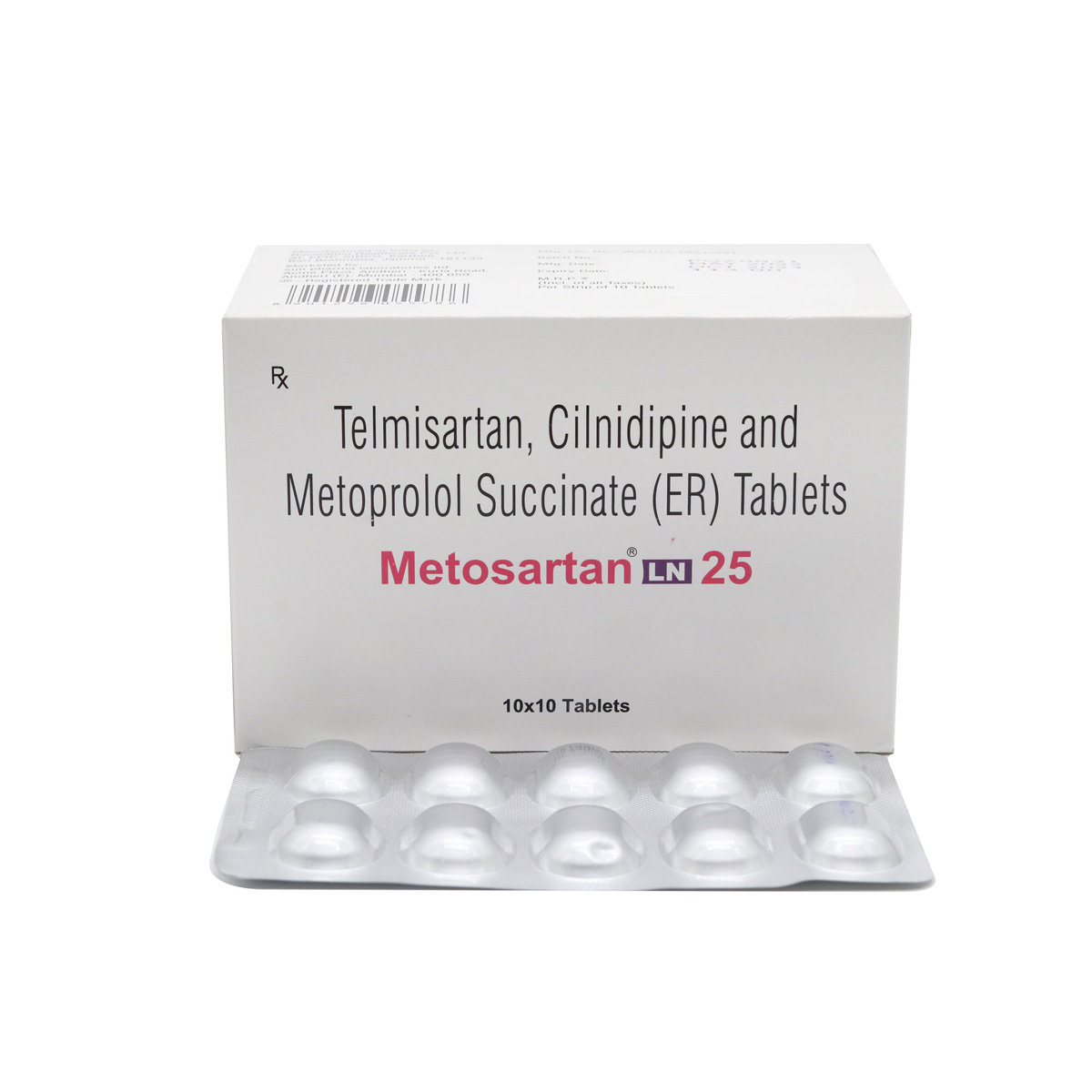

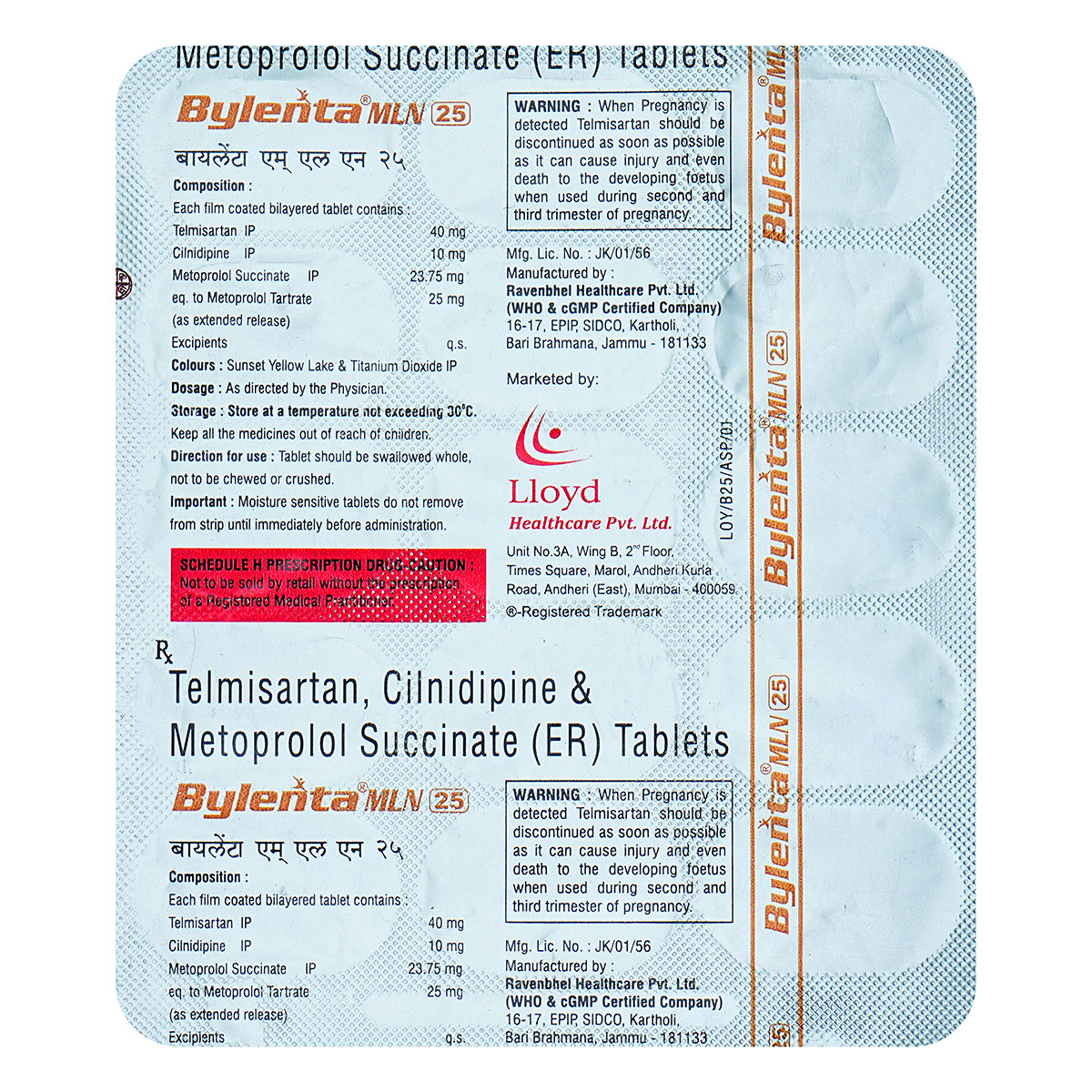
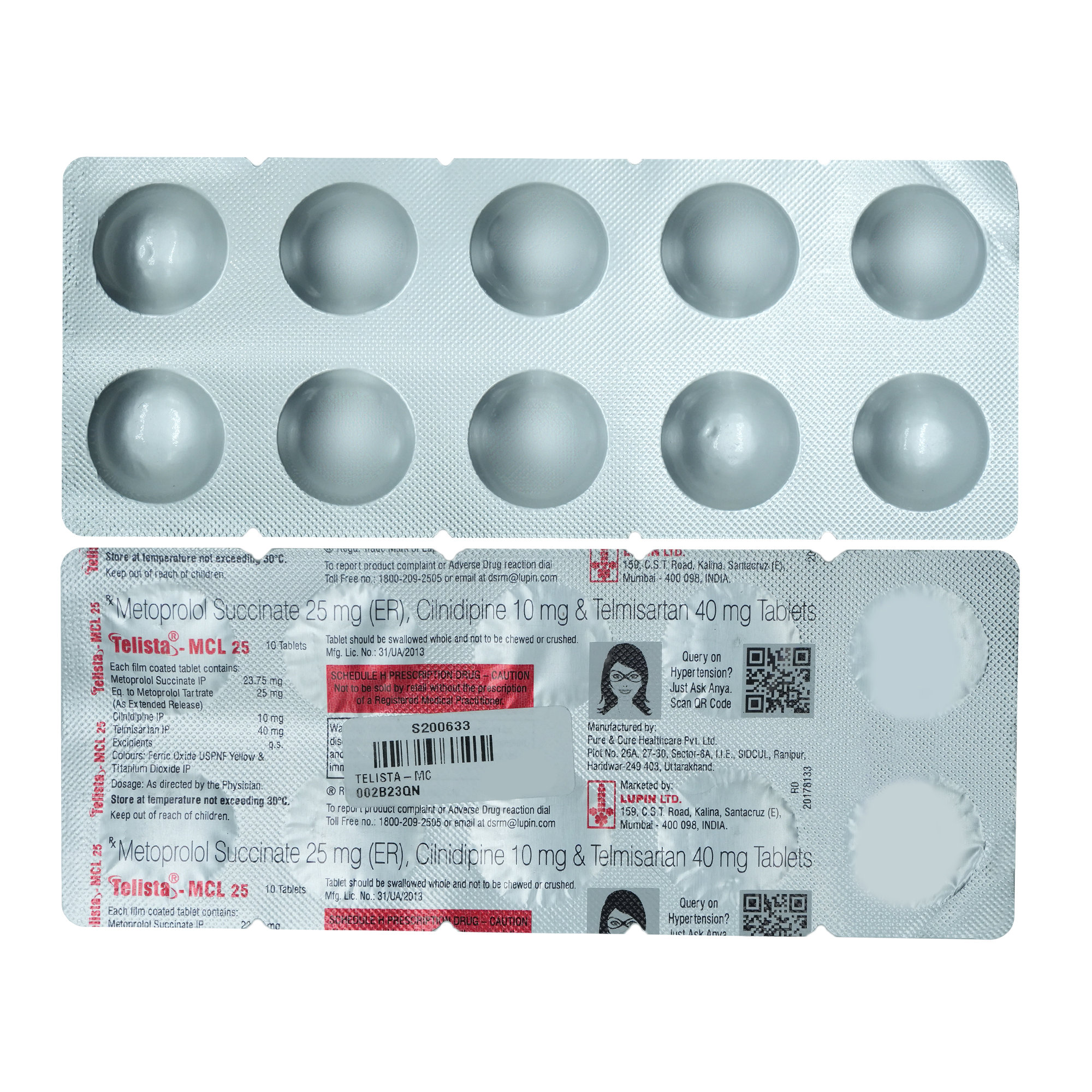

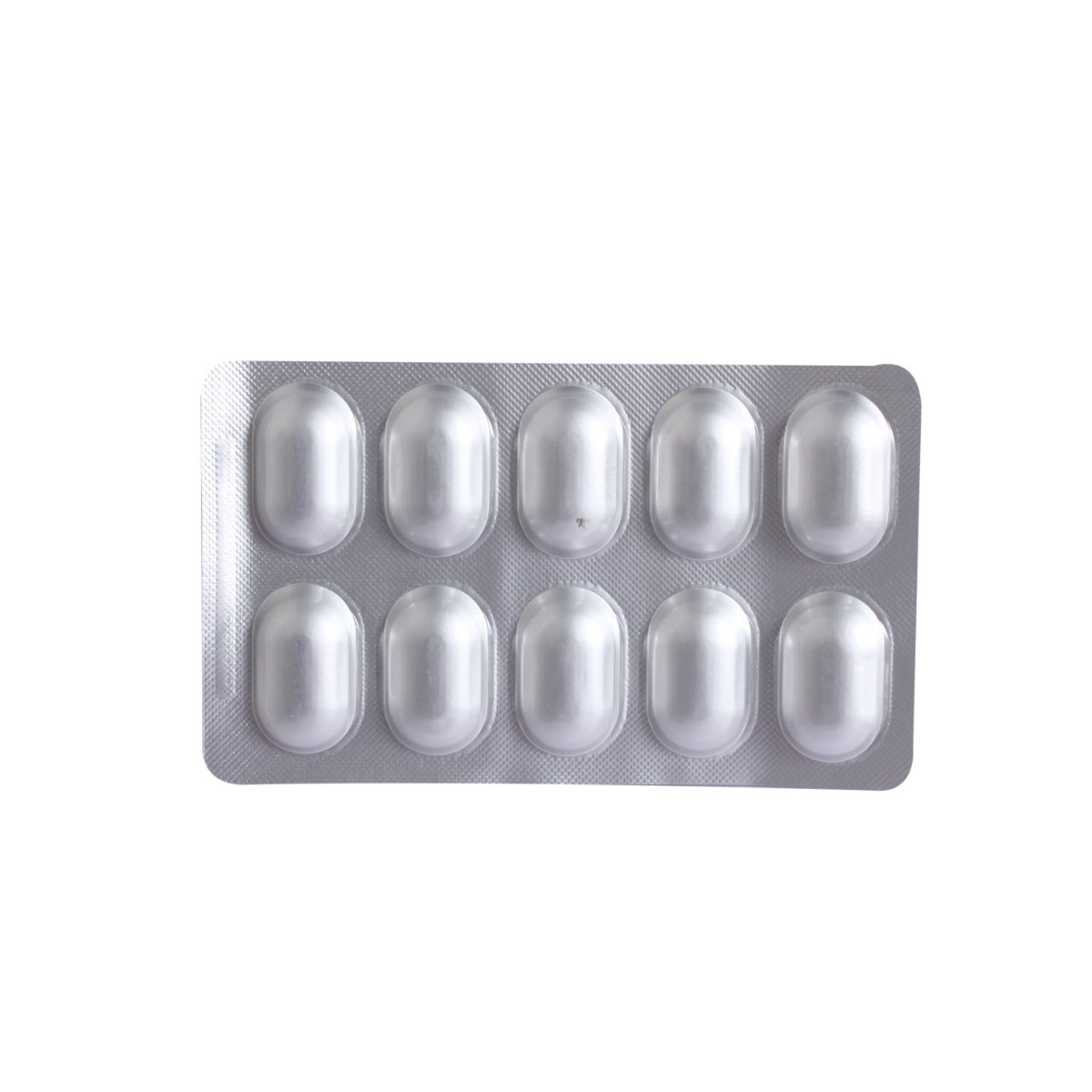

_0.jpg?tr=q-85)

